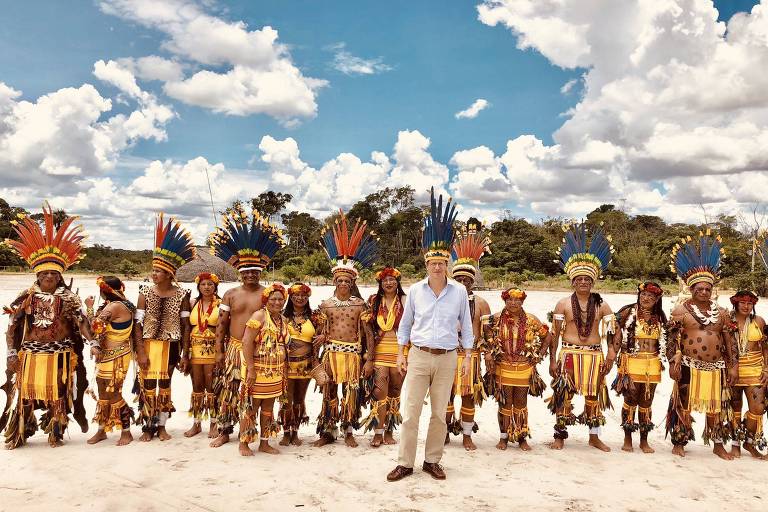On his first trip ever to the Amazon, Environment minister Ricardo Salles, 43, chose to visit an indigenous reservation where white farmers grow mechanized soybean and genetically modified corn and pay a percentage of profits to the tribe. The practice is considered illegal by Brazilian law.
During an interview in a late-night television show on Monday (11th), Salles admitted having never stepped foot in the Amazon, which occupies about 60% of Brazil's territory.
Agriculture minister Tereza Cristina went with him. In a press release, the ministry claims that the Pareci tribe planted 10,000 hectares for the 2018/19 harvest, including 8,700 hectares of soybeans, thanks to an alleged agreement between the General Attorney's office, Ibama (the Brazilian environmental protection agency) and Funai, the department that cares for the interests of Brazilian indigenous peoples.
But both Ibama and the Attorney's office say they did not sign any agreement to enable mechanized farming within the indigenous reservations of Mato Grosso.
The General Attorney's office said, in a statement, that while it recognizes the self-determination of indigenous peoples, it upholds "the Constitution and other laws that indigenous peoples the exclusive use of their lands, thereby preventing outsiders from taking advantage of indigenous lands for their economic gains disguised as illegal partnership or lease agreements."
The Office said that they are intermediating a negotiation between Ibama and the Parecis to legalize their farming, in addition to offering options of sustainable farming crops and techniques.
Translated by NATASHA MADOV
Read the article in the original language
